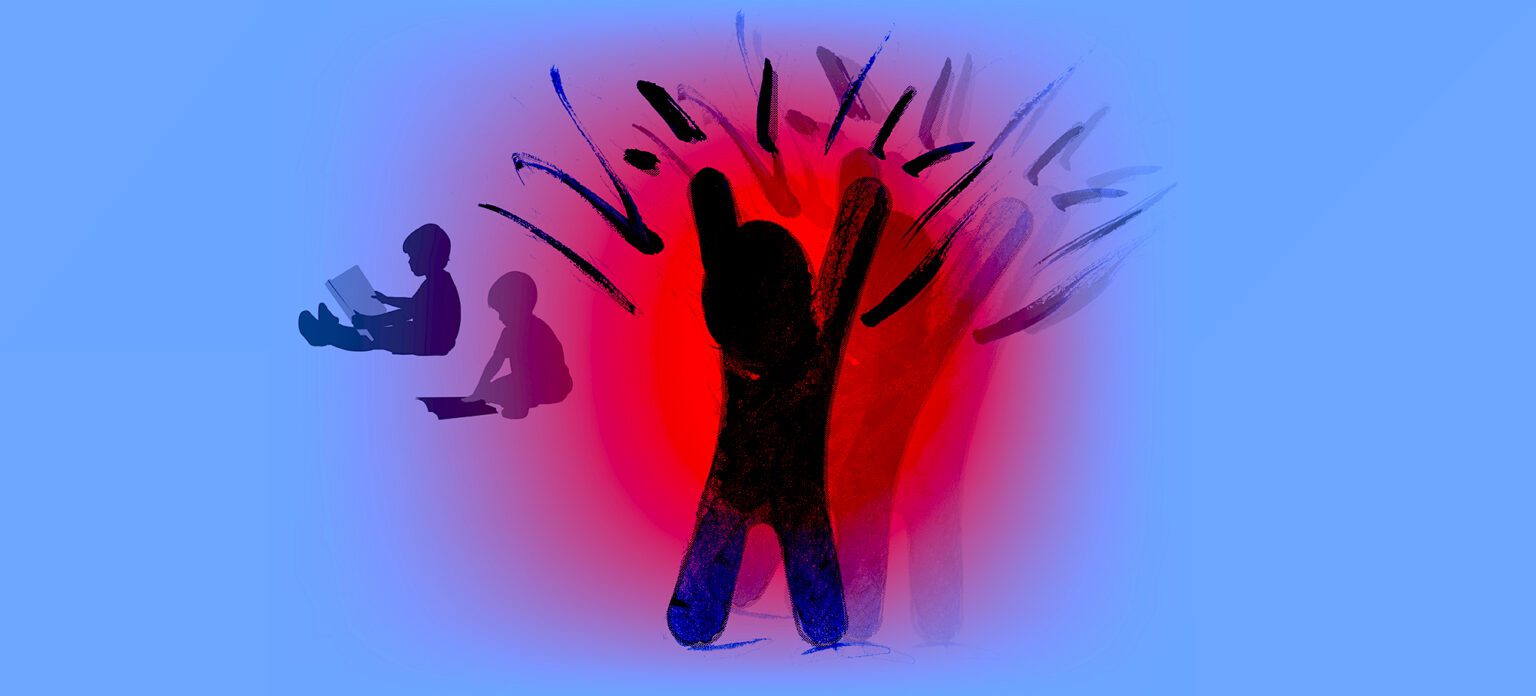what is
Attention Deficit Hyperactivity Disorder (ADHD)
ADHD involves a unique dysfunction in the brain’s executive system, influencing various behaviours in children, such as the ability to inhibit irrelevant thoughts when someone is speaking or during classroom lessons. They may be constantly fidgety, feel the need to move or get up during class, and interrupt the flow of the lesson with unrelated questions or impulsive answers.
Individuals with ADHD often struggle to distinguish what is important and should be the focus from what is insignificant, like sudden noises or passing car engines, which easily distract them from the lesson.

In essence, individuals with ADHD face challenges in self-regulating and disciplining their thoughts and attention to focus on the present moment, the here and now, such as the immediate lesson they need to learn for the next day. They often struggle to filter important information from distractions and maintain mental sequencing—knowing where to start and in what order to proceed.
Furthermore, ADHD affects emotional regulation and the ability for internal dialogue—understanding what they can or cannot do, should or should not do, and what they are capable or incapable of doing.
Inattentive Type ADHD (ADHD-I) presents unique challenges, usually related to sensory processing, but not only:
- Smell: For instance, the child may become distracted by the smell of a sandwich from the person sitting next to them, causing them to lose focus on their current task.
- Visual: During a teacher’s lecture, the child’s attention might shift away because he notices something stuck in the teacher’s teeth, or the fly that has suddenly appeared.
- Tactile: Holding a cold metal sharpener after using a warm wooden pencil to write can disrupt his concentration.
- Aural: A word he just heard from his mate sitting behind him might trigger him to start thinking about the game he watched the previous day. Or he hears a horn and forgets what he was saying or doing because he gets distracted by wondering what brand of car or motorcycle it might be.
In each scenario, the introduction of a new sensory stimulus, or thought overrides the previous one, leading to a loss of focus and the child forgetting what he was originally engaged in. His attention shifts from one stimulus to another uncontrollably, making it difficult for him to self-regulate and refocus on his original activity.
The student’s attention, however, can also be disrupted by
Internal thoughts: Thoughts that they are unable to control, such as for example, worrying that visiting his grandmother on Saturday might cause him to miss his online game with his friends.
Teachers often describe this type of student as “a daydreamer,” “lost in space,” “absent,” “somewhere else,” or “quiet but disengaged.”
it's the child who...

a little more on ADHD
In these instances, a developmental pediatrician (during infancy and early childhood) is essential, and as the child grows, a child psychiatrist should take over. A child on medication must be regularly monitored by the prescribing child psychiatrist, typically every 2 to 3 months, to account for growth and development.
It is equally essential for parents to attend counselling sessions with a psychologist, psychotherapist, or their child psychiatrist at least twice a month. It is critical that the family psychologist supporting the parents is familiar with this specific syndrome, understands its implications, and is knowledgeable about the effects of medication on a developing brain.
Additionally, all professionals working with ADHD must be well-informed about the latest research and updated data. The goal should be to provide the child with the right support framework, fostering healthy relationships not only with their parents but also with other family members, the school, and beyond.
Comorbidity (the coexistence) with other developmental disorders is common, which is why interdisciplinary diagnosis during preschool and before the start of formal schooling is crucial, along with ongoing monitoring by a child psychiatrist throughout childhood and adolescence. Later, continued monitoring by a psychiatrist is equally important, as the symptoms of this syndrome change in adulthood.
*46:523–532; Danielson, ML, et al. Journal of Clinical Child & Adolescent Psychology, Volume 47, 2018 – Issue 2 ) (DSM-5, 2013; J.S. Raiker, L.Greening, L. Stoppelbein, S. P. Becker, P.J. Fite , Α.M. Luebbe – Child Psychiatry Hum Dev (2015).
